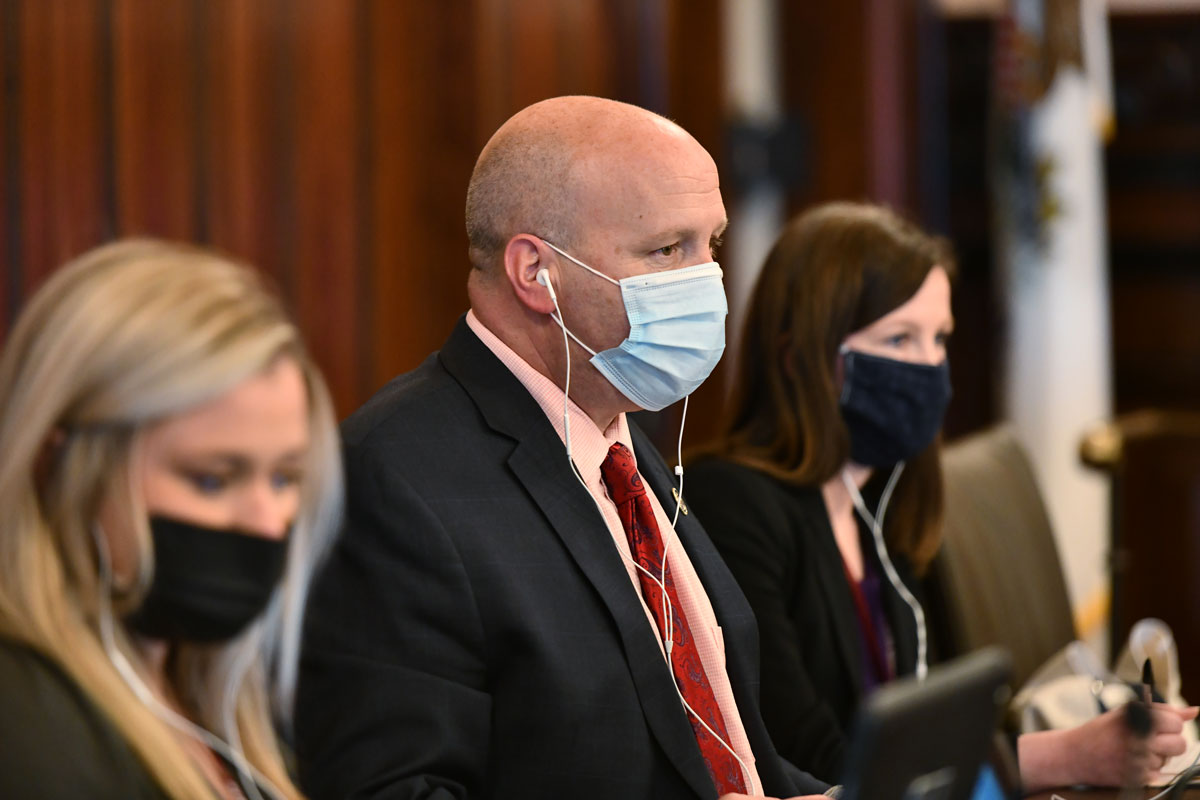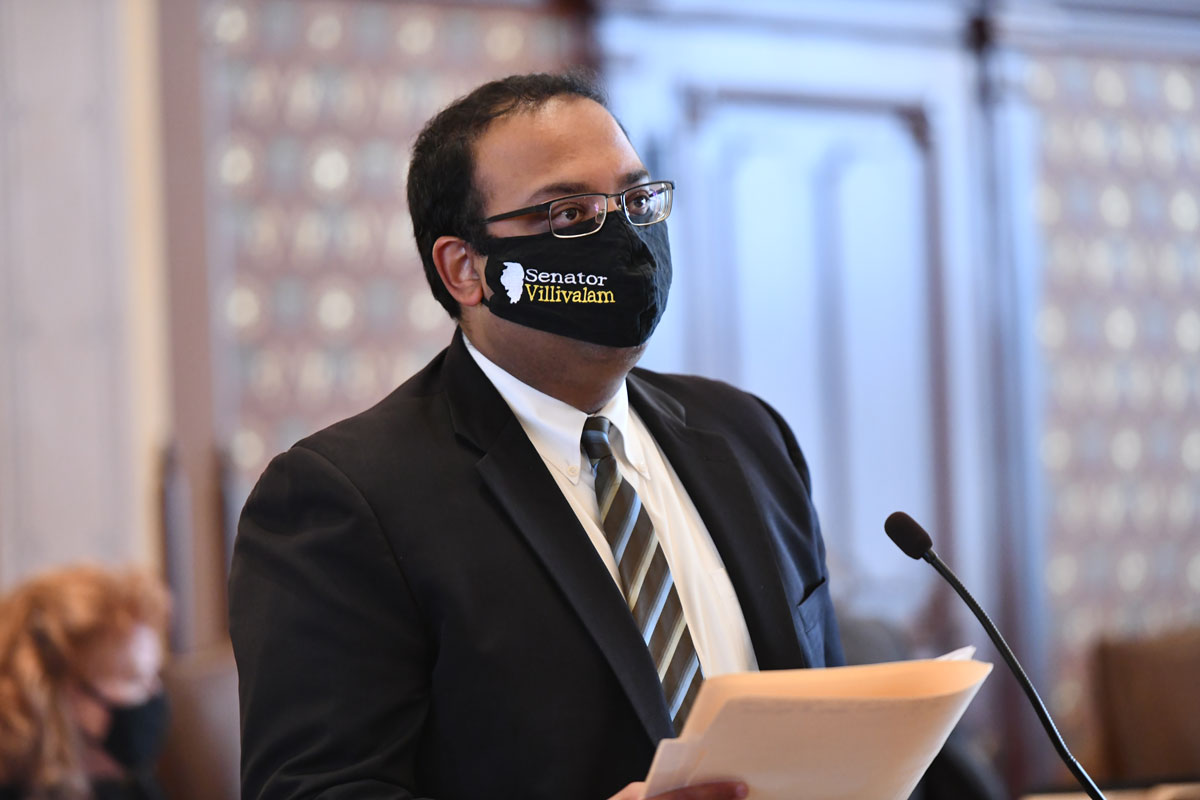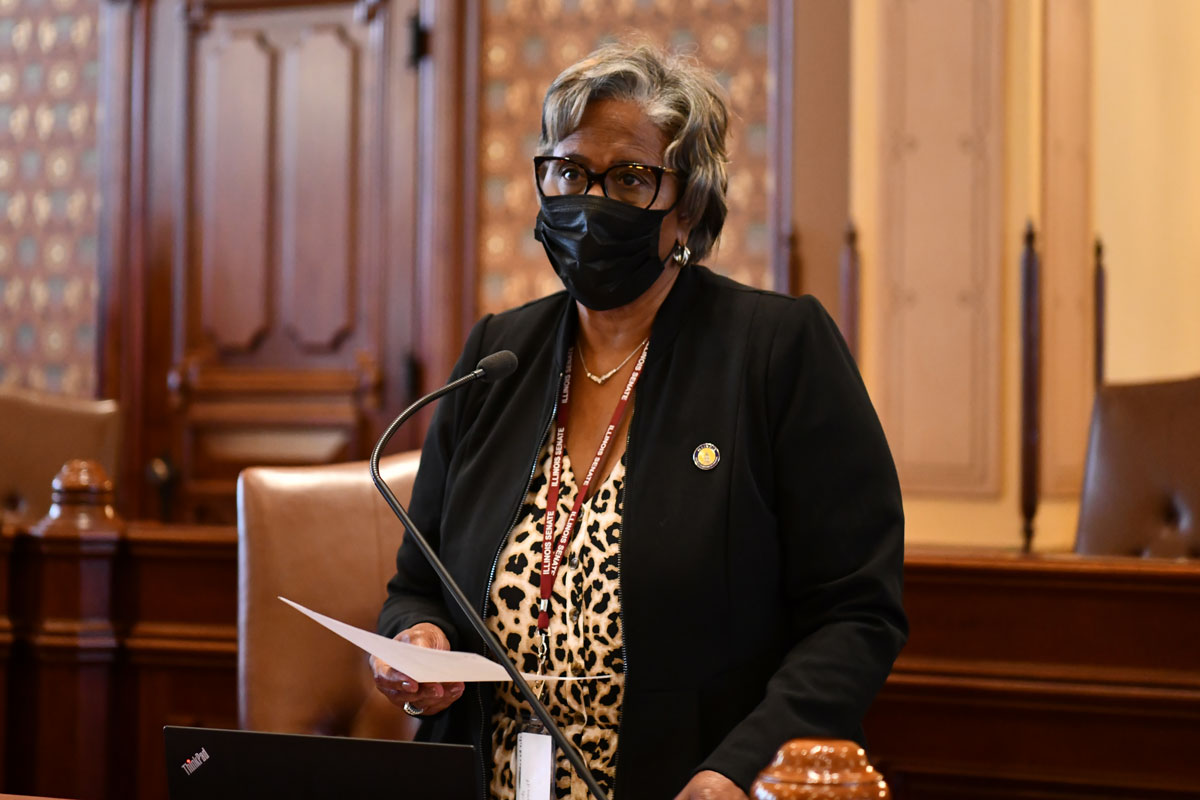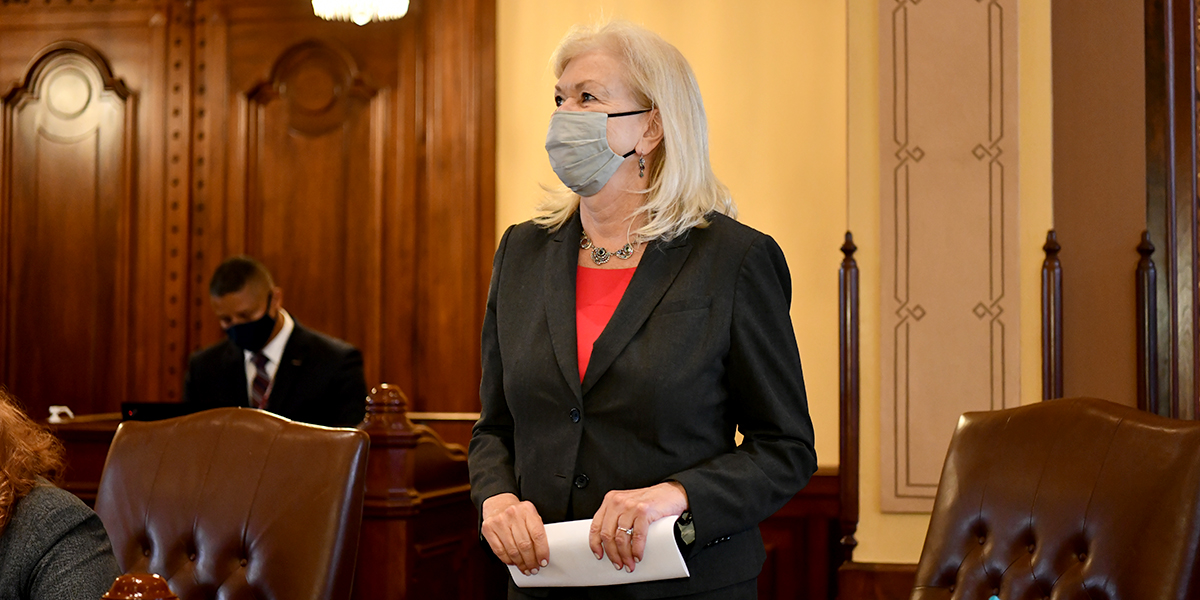- Details
- Category: Senator Robert Martwick News
 CHICAGO – Last week, State Senator Robert Martwick (D-Chicago) was awarded the Friend of Education award by the Illinois Education Association for his continued commitment to helping students and educators in their pursuit of knowledge.
CHICAGO – Last week, State Senator Robert Martwick (D-Chicago) was awarded the Friend of Education award by the Illinois Education Association for his continued commitment to helping students and educators in their pursuit of knowledge.
“It is an honor to receive such an outstanding award from an organization working to help the citizens of Illinois,” Martwick said. “Education remains the center of our society, and we must adapt to the ever-changing future as much as we can to help educators and student succeed.”
This Friend of Education award recognizes an individual who has demonstrated commitment to the success of public education and to the ideals and mission of the IEA-NEA.
Martwick has long been a supporter of education and works hard to make sure students are taken care of inside and outside of school. This means teachers are being recognized and supported for all their hard work, and students are able to feel safe and secure in the learning environment.
“I will continue to support educators and students who are working to better themselves,” Martwick said. “Creating meaningful legislation that works to improve our education system and ensure the safety and comfort of students and teachers is what is truly important.”
Martwick is currently sponsoring legislation like Senate Bill 1577, which would provide students with the ability to take mental health days away from school, and House Bills 576 and 577, which would help to identify students who are at risk for suicide and help bolster mental health awareness.
- Details
- Category: Senator Robert Martwick News
 CHICAGO – This past Tuesday, the Illinois Department of Transportation announced the fourth round of grants that are going out to local communities from the Rebuild Illinois Statewide Construction Program, and State Senator Robert Martwick (D-Chicago) is pleased that approximately $1.9 million in funding is coming to the community to help rebuild transportation infrastructure and get people back on track.
CHICAGO – This past Tuesday, the Illinois Department of Transportation announced the fourth round of grants that are going out to local communities from the Rebuild Illinois Statewide Construction Program, and State Senator Robert Martwick (D-Chicago) is pleased that approximately $1.9 million in funding is coming to the community to help rebuild transportation infrastructure and get people back on track.
“This funding will help many people find jobs while maintaining the transportation they use to visit family, go to school, and travel to work,” Martwick said. “This funding is a building block in our recovery from the COVID-19 pandemic.”
A total of $1.5 billion spread out in six installments is being invested over three years to advance municipal, township and county projects across the state. Projects include road and bridge improvements, traffic signal upgrades, new storm sewers and bike paths, sidewalk replacements and other long-term maintenance needs, with financial oversight from the Illinois Department of Transportation.
A complete list of local agencies and awards can be viewed here.
“An investment in our communities’ infrastructure goes a long way,” Martwick said. “People rely on our roads and bridges every day, and we need to make sure they remain safe.”
As part of its current FY2021-26 Proposed Highway Improvement Program, IDOT is investing a total of $21.3 billion to improve roads, bridges, and local transportation.
- Details
- Category: Senator Tom Cullerton News
 SPRINGFIELD – In a Senate Veterans Affairs Committee hearing Friday, State Senator Tom Cullerton (D- Villa Park) led a discussion regarding a recently released report on the November COVID-19 outbreak at the LaSalle Veterans’ Home. The veterans’ home is ran by the Illinois Department of Veterans Affairs.
SPRINGFIELD – In a Senate Veterans Affairs Committee hearing Friday, State Senator Tom Cullerton (D- Villa Park) led a discussion regarding a recently released report on the November COVID-19 outbreak at the LaSalle Veterans’ Home. The veterans’ home is ran by the Illinois Department of Veterans Affairs.
“My colleagues and I were all horrified to hear about the devastating loss of life at the LaSalle Veterans’ Home this past fall and winter,” said Cullerton, chair of the Veterans Affairs Committee. “I’ve read the full OIG report and it is clear to me that there was a breakdown of communication between staff and management at the facility.”
Read more: Cullerton calls for reform in LaSalle Veterans’ Home hearing
- Details
- Category: Senator Ram Villivalam News
 CHICAGO – To better serve undocumented and immigrant communities, State Senator Ram Villivalam (D-Chicago) passed legislation in the Illinois Senate on Thursday that would allow municipal ID cards to be used to access state services and facilities.
CHICAGO – To better serve undocumented and immigrant communities, State Senator Ram Villivalam (D-Chicago) passed legislation in the Illinois Senate on Thursday that would allow municipal ID cards to be used to access state services and facilities.
“All residents of Illinois, regardless of immigration status, should be able to receive essential state services,” Villivalam said. “Allowing municipal IDs to be used for this will allow the most vulnerable among us to get the assisstance they need.”
Read more: Villivalam to make state services more accessible through CityKey ID
- Details
- Category: Senator Doris Turner News
 SPRINGFIELD – On Saturday, May 15, State Senator Doris Turner (D-Springfield) will celebrate the grand opening of the Decatur District Office with a ribbon cutting.
SPRINGFIELD – On Saturday, May 15, State Senator Doris Turner (D-Springfield) will celebrate the grand opening of the Decatur District Office with a ribbon cutting.
“I’d encourage those of you in the area to stop by for a personal meet and greet,” said Turner. “I am very excited about the opening of our new offices and I am eager to get out and meet the community.”
The event will be held until 1 p.m. and district advisors strongly encourage visitors to wear a mask.
What: Ribbon Cutting for Decatur District Office
When: Saturday, May 15, 2021
Where: 12:00 p.m. – Ribbon Cutting for Decatur District Office
J. Morris Enterprises 1210 S. Jasper St. Decatur, IL 62521
- Details
- Category: Senator Julie A. Morrison News

SPRINGFIELD – After more than a year of social distancing, mask wearing and limited quality time with loved ones, Senator Julie Morrison (D-Lake Forest) is pleased Illinois has now moved one step closer to normalcy as the Bridge Phase of the Restore Illinois Plan begins.
“The return to normalcy is on the horizon,” Morrison said. “But life as we once knew it is only feasible if we get vaccinated and continue to mask up in crowded areas.”
Illinois entered what has been pegged as the “Bridge Phase” of its recovery plan Friday, allowing capacity limits to ease and business operations to increase.
The move to the Bridge Phase – which is the final phase before a full reopening – comes as more than 10.3 million COVID-19 vaccine doses have been administered across the state. Barring any significant reversals in cases and hospitalizations, Governor JB Pritzker said the state could see a full reopening as soon as June 11.
Read more: Morrison: The return to normalcy is on the horizon
- Details
- Category: Member News

“I am proud of the hard work that members of the caucus put in to make sure that residents can safely access their homes,” said State Senator Ann Gillespie (D-Arlington Heights), Chair of the Senate Women’s Caucus. “All of us are grateful to Habitat for their work and for organizing this event.”
Read more: Senate Women’s Caucus volunteers at Habitat for Humanity
- Details
- Category: Senator Rachelle Crowe News
 MARYVILLE – The Illinois Department of Transportation (IDOT) has announced the fourth $250 million installment of Rebuild Illinois grants is available for local road projects, and State Senator Rachelle Crowe (D-Glen Carbon) is applauding more than $1.5 million in investments for Madison County infrastructure.
MARYVILLE – The Illinois Department of Transportation (IDOT) has announced the fourth $250 million installment of Rebuild Illinois grants is available for local road projects, and State Senator Rachelle Crowe (D-Glen Carbon) is applauding more than $1.5 million in investments for Madison County infrastructure.
“With our state still recovering from the economic issues caused by the COVID-19 pandemic, this round of grants comes at a critical time for the Metro East,” Crowe said. “By investing in our transportation infrastructure, Illinois is expressing its commitment to local labor jobs as well as reliable transportation for our residents.”
Through the Rebuild Illinois program, investments totaling $1.5 billion are scheduled to be spread out over three years to advance municipal, township and county projects across the state. Projects include road and bridge improvements, traffic signal upgrades, new storm sewers and bike paths, sidewalk replacements, and other long-term maintenance needs.
“Rebuild Illinois is about more than just our state’s transportation infrastructure,” Crowe said. “By strengthening roads and bridges, Illinois is prioritizing safety for motorists, creating good-paying jobs and investing in long-term economic development.”
A complete list of local agencies and awards can be viewed here.
More Articles …
- Stadelman: Fourth round of Rebuild Illinois grants bring $4 million to Rockford
- Birth certificates would reflect trans and non-binary Illinoisans’ identities under Senator Fine measure
- Senator Holmes applauds Magick Woods expansion in Aurora
- Unused medications could go to families in need under Villa legislation
Page 492 of 768













 © 2026 Illinois Senate Democratic Caucus
© 2026 Illinois Senate Democratic Caucus